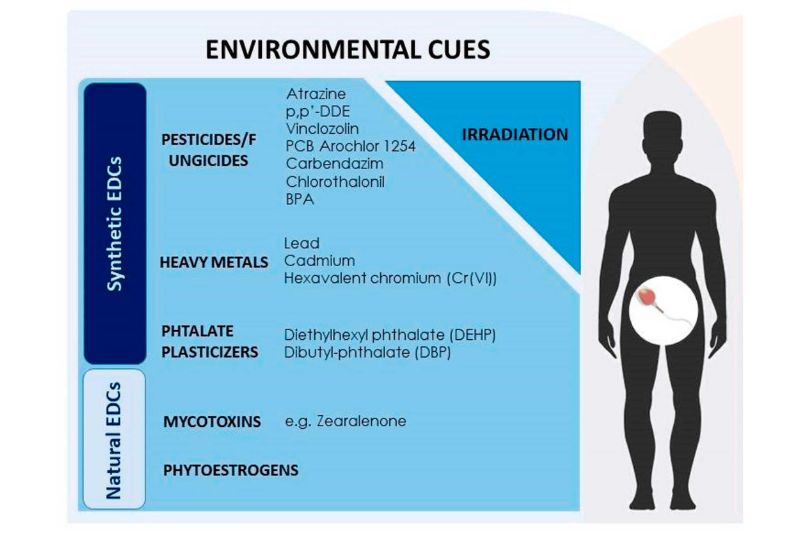The environment we inhabit is a complex web of interconnected elements that shape our lives, health, and well-being. Amidst the hustle and bustle of modern living, it’s crucial to recognize the profound impact that environmental factors can have on male health and fertility. From exposure to pollutants and toxins to the subtle influences of lifestyle choices, this article delves into the intricate relationship between environmental factors and their implications for men’s overall health and reproductive capabilities.
Pollutants and Toxins
a. Endocrine Disruptors:
Exposure to endocrine-disrupting chemicals, such as phthalates, bisphenol A (BPA), and pesticides, can interfere with hormonal balance, potentially leading to reduced sperm quality, hormone imbalances, and fertility issues.
b. Air Quality:
Urban living and exposure to air pollution have been linked to oxidative stress, inflammation, and genetic damage, all of which can impact male reproductive health.
Lifestyle Choices and Habits
a. Smoking and Substance Abuse:
Smoking and substance abuse not only harm overall health but can also impair sperm production, motility, and morphology, contributing to fertility challenges.
b. Alcohol Consumption:
Excessive alcohol intake can disrupt hormone production and sperm quality, affecting fertility and reproductive health.
c. Diet and Nutrition:
Poor dietary choices, such as consuming processed foods high in trans fats and sugars, can lead to weight gain, inflammation, and hormonal imbalances that negatively affect male health and fertility.
Occupational Exposures
a. Heat Exposure:
Occupations that involve prolonged exposure to high temperatures (e.g., firefighters or welders) can impact testicular health, potentially affecting sperm production and quality.
b. Chemical Exposure:
Working with certain chemicals, heavy metals, or radiation can pose risks to male reproductive health, leading to DNA damage, decreased sperm quality, and fertility issues.
Technological Advances
Electromagnetic Radiation:
Extended exposure to electromagnetic radiation from electronic devices like laptops, smartphones, and Wi-Fi signals has raised concerns about its potential impact on male fertility and reproductive health.
Protecting Male Health: Strategies and Precautions
a. Minimize Exposure:
Reducing exposure to environmental pollutants, toxins, and chemicals can help mitigate their potential impact on male health. This includes using natural cleaning products, choosing BPA-free containers, and adopting a mindful approach to food and water consumption.
b. Healthy Lifestyle:
Prioritizing a healthy lifestyle that includes a balanced diet, regular exercise, stress management, and avoiding tobacco and excessive alcohol consumption contributes to optimal male health and fertility.
c. Occupational Safety:
Individuals working in environments with potential reproductive hazards should adhere to safety guidelines, wear protective gear, and take breaks to reduce heat exposure.
d. Technology Use:
While more research is needed, moderating exposure to electromagnetic radiation by reducing screen time and using devices mindfully may be beneficial.
Environmental factors are dynamic forces that shape our daily lives and influence our health in profound ways. Recognizing the potential impact of pollutants, toxins, lifestyle choices, and technological advancements on male health and fertility empowers individuals to take proactive steps towards safeguarding their well-being. By embracing a holistic approach that combines awareness, informed choices, and necessary precautions, men can navigate the modern world while maintaining optimal reproductive health. With these insights, individuals can aspire to lead lives marked by vitality, wellness, and the potential to nurture future generations.

